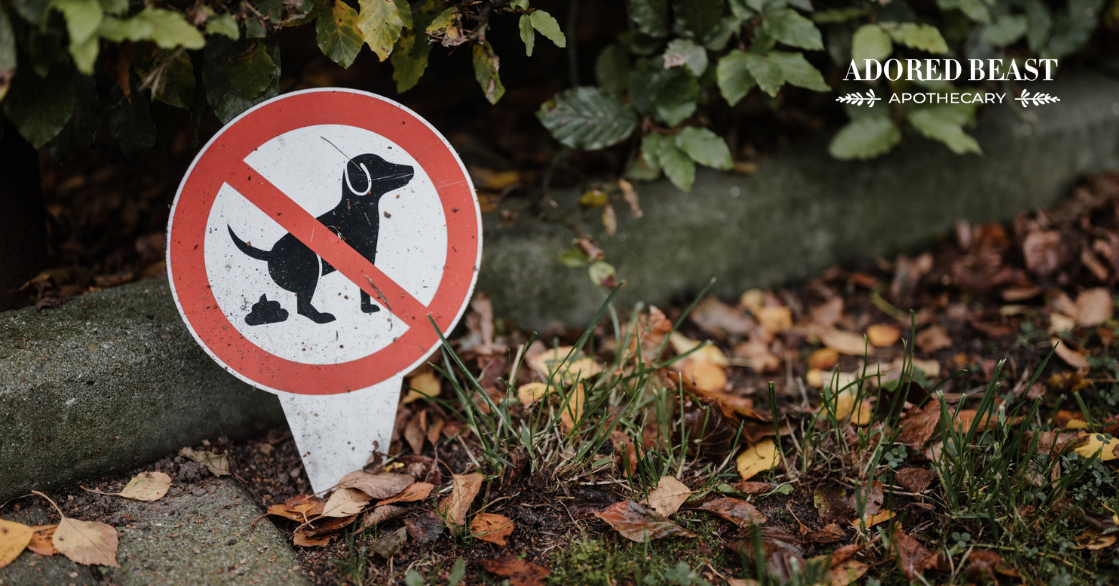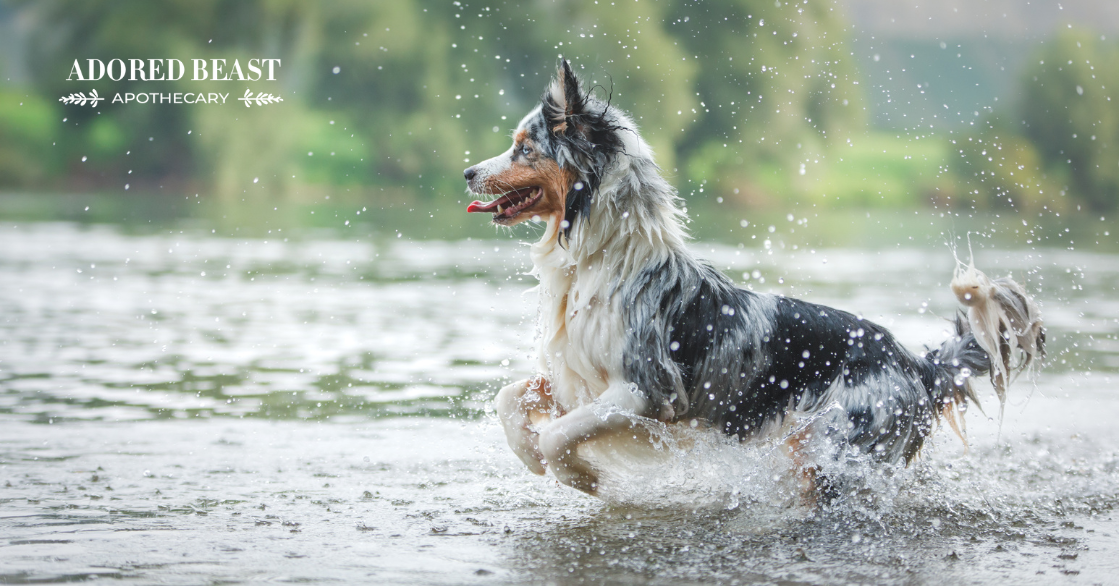Just like humans, dogs can occasionally get backed up. While a day or two without a bowel movement might not be cause for alarm, persistent constipation can lead to discomfort and even serious health issues. Thankfully, for mild cases, natural laxatives for dogs can help your pup get back to their regular routine safely.
In this blog, we’ll explore why dogs may need a little help in this department, the natural remedies to alleviate constipation, and important cautions to keep in mind.
Why Dogs May Need Laxatives
Constipation in dogs occurs when their stools become hard and difficult to pass. In addition to a lack of poops in general, you might notice straining, discomfort, or a lack of interest in eating.
Common causes include:
- Dehydration – Hydration is critical to overall health, and a lack of water leads to dry, hard stools.
- Dietary Imbalances – A healthy, balanced diet should mean smooth movement in the bowel department. Your pup should be getting everything they need from their food to keep things running as they should. However, insufficient fibre or eating something indigestible can disrupt bowel movements. Too much bone can also play a role.
- Lack of Exercise – Moving the body helps keep things moving in the bowel. Inactivity can slow down digestion and contribute to constipation.
- Age – Older dogs are more prone to constipation due to slower metabolism and reduced activity.
- Stress or Anxiety – Emotional changes can impact digestive health. Stress, anxiety, boredom – all of these can disrupt normal bowel function.
- Underlying Health Issues – Problems such as enlarged prostate, pelvic injuries, or tumors may contribute to constipation and require veterinary attention. A blockage will also lead to no poops.
Natural Laxatives for Dogs
If your dog is otherwise healthy and only mildly constipated, these natural remedies can help, often within a few hours or a day:
1. Pumpkin
- Why It Helps: Pumpkin is high in fibre and water, both of which can soften stools and improve bowel movements.
- How to Use: Give 1-2 tablespoons of plain, unsweetened pumpkin puree (not pumpkin pie filling) for small dogs and up to ¼ cup for larger breeds.
2. Coconut Oil
- Why It Helps: Coconut oil can lubricate the digestive tract, making it easier for stool to pass.
- How to Use: Add 1 teaspoon for small dogs or 1 tablespoon for large dogs to their food once daily.
3. Aloe Vera Juice
- Why It Helps: Aloe vera has soothing properties that can support digestion and ease constipation.
- How to Use: Mix 1 teaspoon of pure aloe vera juice (not the gel) into your dog’s food once daily.
4. Chia Seeds
- Why It Helps: Chia seeds expand when mixed with liquid, adding bulk and moisture to stools.
- How to Use: Soak 1 teaspoon of chia seeds in water for 10 minutes and mix into your dog’s food.
5. Broth or Bone Broth
- Why It Helps: Hydration is key to relieving constipation, and broth encourages dogs to drink more.
- How to Use: Offer a bowl of unsalted, homemade bone broth as a hydrating snack. (Here’s our recipe for it.)
6. Fresh Apples (Without the Seeds)
- Why It Helps: Apples are a natural source of fibre and can help stimulate digestion.
- How to Use: Grate or finely chop a few slices and offer them as a snack.
7. Fresh Greens
- Why It Helps: Fresh greens like spinach or kale are full of fibre and can help stimulate digestion.
- How to Use: Grate or finely chop them up an add a small handful to food or on their own.
8. Slippery Elm Bark
- Why It Helps: This herb creates a soothing gel that coats the digestive tract and promotes regularity.
- How to Use: Mix ¼ teaspoon of powdered slippery elm bark with water and give it to your dog twice a day. You can also use our Canine Gut Soothe!
Just a few tips for using natural laxatives: start slowly and introduce new foods or remedies in small amounts to avoid overwhelming your dog’s digestive system. Also, don’t overdo it – don’t add all of these at once as too much fiber or oil can lead to diarrhea or other digestive issues.
IMPORTANT: Never use human laxatives for dogs. Medications designed for humans can be harmful to dogs and should only be used if prescribed by a veterinarian.
When to See the Vet
Natural remedies for dogs are helpful for mild, occasional constipation, but you should consult a veterinarian if:
- Your dog hasn’t had a bowel movement in more than 48 hours.
- They show signs of pain or discomfort, such as straining or whining.
- You notice vomiting, lethargy, or loss of appetite.
- There is blood in their stool.
- Your dog has a history of underlying health conditions that could contribute to constipation.
Constipation can be uncomfortable for your dog, but there are several natural laxatives for dogs (and tips to get things moving) that can help get their digestion back on track.












